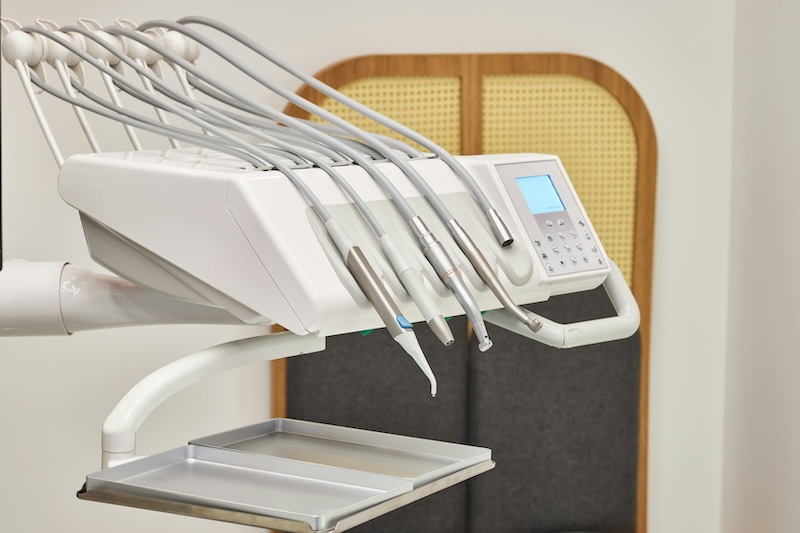Introduction
Titanium has revolutionized the medical industry due to its unique properties, such as excellent biocompatibility, corrosion resistance, and high strength-to-weight ratio. These features make titanium an ideal material for a variety of medical applications, including implants, surgical instruments, and prosthetics, contributing to improved patient outcomes and long-term durability.
In this article, we explore the diverse applications of titanium in the medical field, highlighting the benefits it provides and why it has become a preferred material for many medical devices and implants.
Features of Titanium
Titanium offers several key features that make it particularly suitable for medical applications:
- Biocompatibility: Titanium is non-toxic and does not cause adverse immune reactions, making it safe for use in the human body.
- Corrosion Resistance: Titanium’s resistance to bodily fluids ensures that implants and devices remain intact and functional for many years.
- High Strength-to-Weight Ratio: Titanium combines high strength with low weight, making it suitable for implants that need to be strong yet comfortable for patients.
- Osseointegration: Titanium has the ability to bond with bone, providing stability and support for implants used in orthopedic and dental applications.
The Most Commonly Used Grades of Titanium in Medical Applications
- Grade 5 Titanium (Ti-6Al-4V): Grade 5 titanium is an alloy that provides high strength and excellent biocompatibility, making it ideal for orthopedic implants and surgical devices.
- Grade 23 Titanium (Ti-6Al-4V ELI): Grade 23 titanium is an extra-low interstitial version of Grade 5, offering improved fracture toughness, making it suitable for implants that require additional flexibility and durability.


Advantages of Titanium in Medical Applications
The use of titanium in medical applications provides several notable advantages:
- Biocompatibility: Titanium’s biocompatibility ensures that it does not trigger adverse immune reactions, making it safe for use in long-term implants.
- Durability: Titanium’s strength and corrosion resistance contribute to the longevity of implants, reducing the need for revision surgeries.
- Lightweight Comfort: Titanium’s lightweight nature ensures that implants and prosthetics are comfortable for patients, allowing for better mobility and quality of life.
Key Applications of Titanium in the Medical Industry
Titanium is used in a wide range of medical applications, including:
- Orthopedic Implants: Titanium is used in a wide range of orthopedic implants, including hip and knee replacements, bone plates, and screws. Its ability to bond with bone makes it ideal for providing stability and support in joint replacements and fracture repairs.
- Dental Implants: Titanium is the material of choice for dental implants due to its ability to fuse with the jawbone (osseointegration), providing a stable foundation for artificial teeth.
- Cranial and Maxillofacial Implants: Titanium is used in cranial and facial reconstruction surgeries to repair bone defects or injuries. Its biocompatibility and strength make it suitable for reconstructing delicate structures.
- Prosthetics: Titanium is used in prosthetic limbs due to its high strength-to-weight ratio, providing durability while ensuring that the prosthetic remains lightweight and comfortable for the user.
- Surgical Instruments: Titanium is used in the manufacture of surgical instruments due to its strength, resistance to corrosion, and non-magnetic properties, making it ideal for precision tools used in surgeries.
Comparisons: Titanium vs. Other Materials in Medical Applications
Titanium is often compared to other materials used in medical applications, such as stainless steel, cobalt-chromium alloys, and polymers:
- Titanium vs. Stainless Steel: Stainless steel is commonly used in medical applications, but titanium offers better biocompatibility, corrosion resistance, and a lower risk of allergic reactions, making it preferable for long-term implants.
- Titanium vs. Cobalt-Chromium Alloys: Cobalt-chromium alloys are strong, but titanium’s lightweight nature and ability to osseointegrate make it a better choice for many implants, particularly those that require bone integration.
- Titanium vs. Polymers: Polymers are often used in prosthetics and implants, but titanium provides superior strength and durability, making it more suitable for load-bearing applications.
Benefits of Using Titanium in Medical Applications
The benefits of using titanium in medical applications are numerous:
- Reduced Risk of Rejection: Titanium’s biocompatibility minimizes the risk of implant rejection, contributing to the success of medical procedures.
- Longevity of Implants: Titanium’s durability ensures that implants remain functional for decades, reducing the need for replacement surgeries.
- Improved Patient Comfort: Titanium’s lightweight nature and ability to bond with bone contribute to improved patient comfort and mobility, enhancing overall quality of life.
Challenges in Using Titanium in Medical Applications
Despite its advantages, there are challenges associated with using titanium in medical applications:
- High Cost: Titanium is more expensive compared to other materials like stainless steel, which can limit its use in some medical applications.
- Machining Difficulty: Titanium’s hardness makes it challenging to machine, requiring specialized tools and techniques that can increase production costs.
Future Trends for Titanium in Medical Applications
The use of titanium in the medical industry is expected to grow with advancements in 3D printing and alloy development. Customized titanium implants made using additive manufacturing are becoming more common, allowing for patient-specific solutions that enhance surgical outcomes. Additionally, surface modifications and coatings are being developed to improve osseointegration and reduce recovery times.
FAQs about Titanium in Medical Applications
- Why is titanium used in medical implants?
- Titanium is used due to its biocompatibility, strength, and ability to bond with bone, making it ideal for long-term implants.
- What types of medical implants use titanium?
- Titanium is used in orthopedic implants, dental implants, cranial implants, prosthetics, and surgical instruments.
- How does titanium integrate with bone?
- Titanium bonds with bone through a process called osseointegration, which provides stability and support for implants.
- Is titanium safe for long-term use in the body?
- Yes, titanium is biocompatible and resistant to corrosion, making it safe for long-term use in the human body.
- What are the advantages of titanium over stainless steel in medical applications?
- Titanium offers better biocompatibility, corrosion resistance, and a lower risk of allergic reactions compared to stainless steel.
- Can titanium be used for dental implants?
- Yes, titanium is commonly used for dental implants due to its ability to fuse with the jawbone and provide a stable foundation for artificial teeth.
- What challenges are associated with using titanium in medical applications?
- The main challenges include the high cost of titanium and the difficulty in machining it for complex medical devices.
- How does titanium improve the comfort of prosthetic limbs?
- Titanium’s lightweight nature ensures that prosthetic limbs are comfortable for the user, allowing for better mobility and reduced fatigue.
- Why is titanium suitable for cranial implants?
- Titanium’s biocompatibility, strength, and ability to be shaped make it ideal for cranial implants used in reconstructive surgeries.
- Is titanium used in surgical instruments?
- Yes, titanium is used in surgical instruments due to its strength, corrosion resistance, and non-magnetic properties, making it ideal for precision tools.
- How does titanium compare to cobalt-chromium alloys in medical applications?
- While cobalt-chromium alloys are strong, titanium’s lightweight nature and ability to integrate with bone make it a better choice for many implants.
- What future developments are expected for titanium in the medical field?
- Advances in 3D printing and surface modifications are expected to improve the customization and integration of titanium implants, enhancing patient outcomes.
- Can titanium withstand the conditions inside the human body?
- Yes, titanium’s resistance to corrosion from bodily fluids ensures that it remains functional and intact inside the human body.
- Why is titanium used in orthopedic implants?
- Titanium’s ability to bond with bone and its high strength make it ideal for orthopedic implants, providing stability and support for joints and fractures.
- How does titanium contribute to the longevity of medical implants?
- Titanium’s durability and resistance to corrosion ensure that medical implants remain functional for decades, reducing the need for replacement surgeries.
Conclusion
Titanium’s unique properties make it an ideal material for use in the medical industry. Its biocompatibility, corrosion resistance, and ability to bond with bone make it invaluable for a wide range of medical applications, from orthopedic and dental implants to surgical instruments and prosthetics. Despite challenges related to cost and machining, the benefits of using titanium in medical applications far outweigh the drawbacks, ensuring its continued use and expanding role in modern healthcare.






